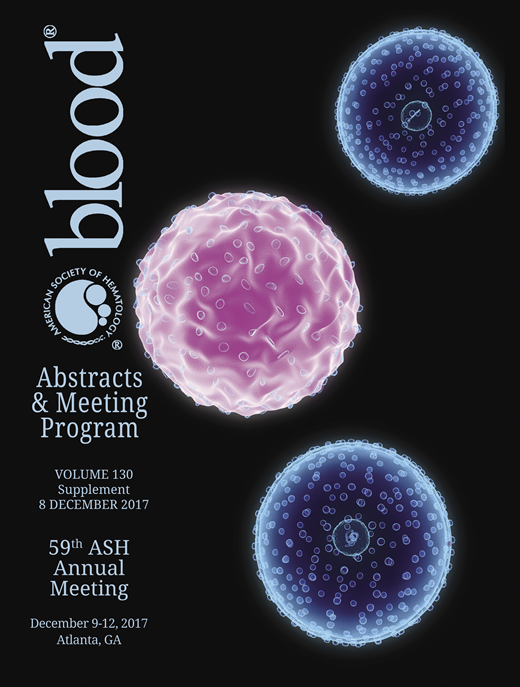Abstract
The development of chimeric antigen receptor (CAR) T cells that target antigens expressed on the surface of malignant plasma cells is a promising new treatment approach for relapsed refractory multiple myeloma patients. Although early clinical trials investigating single agent anti-B cell maturation antigen (BCMA) CAR-T cells achieved clinical responses in myeloma, additional combinatorial therapies may increase the effectiveness of this treatment. Lenalidomide, a small molecule immunomodulatory agent approved for use in multiple myeloma, can have both direct tumoricidal and T cell modulatory effects. Recent publications have highlighted the ability of lenalidomide to enhance T cell and CAR-T function in preclinical models.
The immunomodulatory effects of lenalidomide were investigated in combination with an autologous cellular drug product transduced to express a BCMA-specific CAR with 4-1BB costimulatory and CD3 zeta endodomains. The intrinsic effects mediated by lenalidomide on CAR-T cell function were evaluated using antigen-coated beads labeled with varying concentrations of BCMA, allowing investigation into how stimulus strength and lenalidomide concentration influence CAR-T cell functionality. Lenalidomide increased CAR-T cell cytokine production across stimulation conditions and CAR-T cells exposed to low levels of antigen demonstrated the most marked increase in cytokine production and activation with the addition of lenalidomide in culture. To further investigate the effect of lenalidomide upon CAR-T cell stimulation, RNA-seq and ATAC-seq molecular analysis of CAR-T cells was carried out after 24 hours or 7 days of stimulation on BCMA coated beads with or without lenalidomide. Differential expression and accessibility results demonstrated an enriched involvement of immune synapse-associated genes, cytokine signaling, and T cell activation pathways consistent with the functional gains measured in the presence of lenalidomide.
The effect of lenalidomide on CAR-T cell cytolytic activity, cytokine production, and proliferation was further evaluated in co-culture with multiple myeloma cell lines displaying a range of BCMA expression. The addition of lenalidomide during co-culture increased CAR-T cell effector cytokine production and cytolytic activity. Lenalidomide also increased CAR-T cell performance over 4 weeks in a repeated serial stimulation of BCMA CAR-T cells with MM1.S cells, an assay designed to predict CAR-T drug product fitness. The lenalidomide-associated increase in persistence and proliferation correlated with an increase in IL-2 production and activation marker expression at multiple time points following repeated stimulation. Next, to measure effector function after chronic stimulation, CAR-T cells were cultured for 7 days with BCMA beads, debeaded, and then cultured with multiple myeloma cell lines. Pre-stimulation on BCMA beads decreased CAR-T cell cytolytic activity and cytokine production in this assay. The addition of lenalidomide during CAR-T cell pre-stimulation increased activation marker expression, decreased PD-1 expression, and prevented the decrease in cytolytic activity relative to vehicle pre-stimulated CAR-T cells.
To evaluate the in vivo activity of daily administration of lenalidomide in combination with BCMA CAR-T cells, NSG mice were injected intravenously with OPM2 multiple myeloma cells. Two dosing strategies were evaluated to determine the effect of dosing lenalidomide concurrently with CAR-T administration or two weeks following CAR-T administration. Both lenalidomide dosing schedules enhanced the function of sub-curative doses of CAR-T cells, as demonstrated by decreased tumor burden and increased animal survival.
Overall, the addition of lenalidomide to BCMA CAR-T cells increased CAR-T function including activation, proliferation, cytolytic activity, and cytokine production in a concentration-dependent manner. The lenalidomide-induced increase in CAR-T function may be advantageous in the myeloma tumor microenvironment as a variety of factors can limit CAR-T efficacy including CAR-T exhaustion and low antigen density expressed on the tumor. Taken together, these data suggest that lenalidomide may potentially increase CAR-T cell activity upon encounter with surface expressed BCMA to enhance an anti-tumor response.
Works: Juno Therapeutics: Employment, Equity Ownership. Soni: Juno Therapeutics: Employment, Equity Ownership. Hauskins: Juno Therapeutics: Employment, Equity Ownership. Sierra: Juno Therapeutics: Employment, Equity Ownership. Baturevych: Juno Therapeutics: Employment, Equity Ownership. Jones: Juno Therapeutics: Employment, Equity Ownership. Curtis: Juno Therapeutics: Employment, Equity Ownership. Johnstone: Juno Therapeutics: Employment, Equity Ownership. Kugler: Juno Therapeutics: Employment, Equity Ownership. Jiang: Juno Therapeutics: Employment, Equity Ownership. Hause: Juno Therapeutics: Employment, Equity Ownership. Sather: Juno Therapeutics: Employment, Equity Ownership. Salmon: Juno Therapeutics: Employment, Equity Ownership. Ports: Juno Therapeutics: Employment, Equity Ownership.
Author notes
Asterisk with author names denotes non-ASH members.

